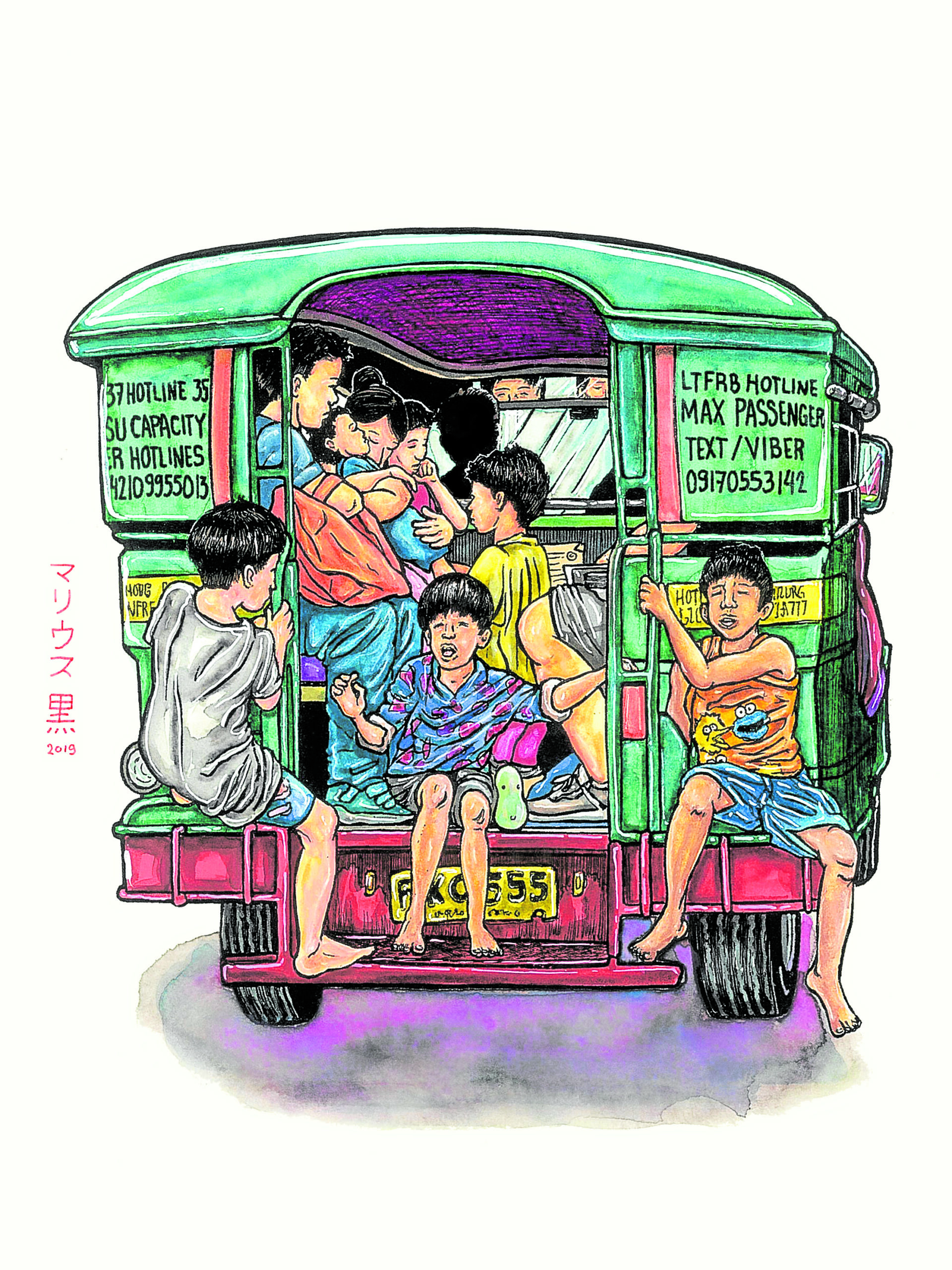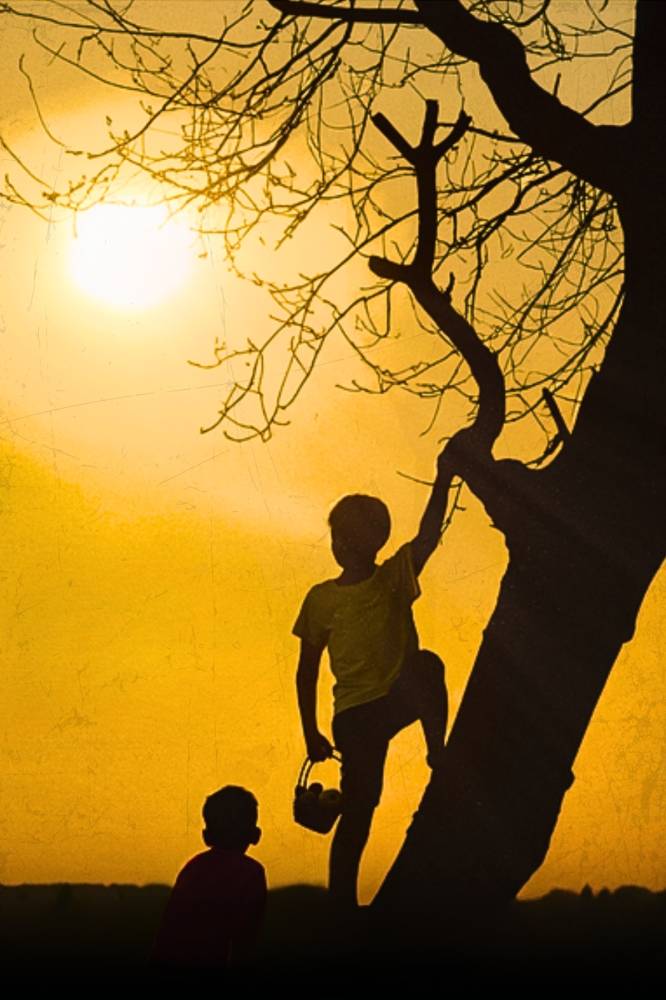
We teenagers can’t handle our feelings very well. We either keep them, or become a walking beacon filled with feelings. Many things that make us sad, depressed or emotional have to do with family, friends or relationship issues.
Arthur Schopenhauer says, “Almost all of our sorrows spring out of our relations with other people.”
Other issues that can cause depression include identity crises, peer pressure and society. Of course, depression affects each person differently, and it’s up to that person to respond accordingly. We always look for answers to questions, and, sometimes, the silence is deafening.
Family issues are a main cause of sadness. Sometimes, we get so pressured to excel and succeed that we become numb to all else. At Brent, since many of the parents of my friends are diplomats, these parents travel often and leave their children behind.
A close friend once cried to me because of the treatment she was getting from her parents. She felt completely isolated because her parents were rarely there for her. She is like Cinderella, because she has a stepmother who neglects her.
Apparently, because she hadn’t submitted a form to school, her dad had gotten mad with her, which became an excellent opportunity for her stepmom to jump in with some harsh words.
The stepmom said things like, “You’ll never get into college—you’ll be just like your pathetic mother.”
The stepmom then went on to boast of how she herself finished her studies.
As I listened to my friend, I felt her pain and frustration.
I have been fortunate never to have experienced that kind of pain. I have been bullied, though, because my mother had me out of wedlock. She didn’t marry until I was 13, and so I’ve basically lived with people’s taunts.
To walk into a crowded hallway and know that people are talking about you and laughing at you is probably one of the worst feelings ever.
Love for literature
I’ve noticed that depression and sadness are connected to my love for literature. It’s as if my feelings are reflected when I read a poem or a wonderfully written book. I also use reading as a distraction. It draws me into a different realm, where I forget about the cruel happenings in the world.
A male friend once told me, after I told him my life story, that it depressed him almost to the point of tears when he thought about how judgmental and cruel a person could be. He promised himself that he would never be as horrible as some people in this day and age are, and I found it amazing how much I agreed with him. I felt pretty bad, though, because I had once judged him the way I did all the other guys in our batch.
Recently, many of the guys in our grade have been creating lists of the hottest girls in our batch. When I heard about this, and how some of the girls had been crying, including one of my best friends, due to what had been said about their looks, I felt so numb because I thought the guys wouldn’t stoop that low. I thought they were more sensitive. But then, as usual, I guessed wrong.
A girl would ask, “Hey, why isn’t so and so on the list?” and the guy would respond, “Dude, she isn’t hot, have you seen her?” And then he would go on to laugh. This is why girls always feel the need to dress up and apply large amounts of makeup.
I admit to being a victim of such vanity, which is another sign of insecurity, I think. When I wake up in the morning, sometimes I just feel like throwing a huge tantrum, and anything is enough to ruin my entire day. I try to fix my abnormal thick-as-a-nest hair, and when it doesn’t do what I want it to do, I can’t just put it up in a bun because, back in school, whenever I would put my hair up, I would be likened to some animal, and people would laugh about it—which has left me scarred.
Relationship issues are also a cause of depression. As teenagers, we’re all very experimental and hormone-driven, so I would argue that we barely know the meaning of “love.” We just think we do whenever some guy or girl pays us a compliment or showers us with promises that are broken in the end.
Horrible feeling
I have a friend who thinks she’ll never be loved/liked by her longtime crush, and I keep telling her that she doesn’t need him to make her feel “complete.”
Unrequited “love” is another horrible feeling, and it’s even more horrendous once that other person you’ve already mentally “called” chases after another person. This can add to the feeling of being utterly alone.
While everyone in the hallways of your school is gossiping about the new pair, you’re there sitting in the background feeling small and isolated, watching the loved and congratulated couple walk past. You feel as though your desperate screams aren’t loud enough to be heard, and the silence you get in return is unbearable.
This situation is common at Brent, and everyone is obviously prone to it. I’ve had numerous friends cry on my shoulder.
Whenever we get sad or depressed, it’s as if there is this enormous hole in our chest. You can’t breathe and you can’t think, and you feel so terribly small and isolated. You feel as though all your flaws are exposed. It’s like you’re the pavement on a rainy day, and then something hits you bad, which could be judgment by other people or society.
Whenever I feel this way, all I want to do is sleep and never wake up. It’s just like what Charlie says in “The Perks Of Being A Wallflower”: “I don’t know if you’ve ever felt like that. That you wanted to sleep for a thousand years. Or just not exist. Or just not be aware that you do exist. Or something like that.
I think wanting that is very morbid, but I want it when I get like this. That’s why I’m trying not to think. I just want it all to stop spinning.”
Either this or I want to write, so at least I put all my emotions down, which distracts me from actually feeling them. No one seems to care, though, that you are suffering. W.H Auden says, “About suffering, they were never wrong, the Old Masters, how well they understood its human position while someone else is eating…”
This poem definitely sums up how I feel about suffering; it’s something you cannot really share with others. While you’re in your room crying or screaming, there will always be people who are the complete opposite—happy. And then when you try to get people to understand you, you feel as if you’re irritating them with your problems, which they start to think aren’t real.
Self-harm
It’s hard to live in a world as judgmental as this. Because of loneliness, one often resorts to outrageous coping mechanisms, such as self-harm, alcoholism and substance abuse. A good friend of mine who has lived with clinical depression for over four years resorted to hurting herself; it started when she was only in the fifth grade.
She says, “Being depressed shouldn’t be used as an expression, because there are people out there who are actually struggling with it every day. I never like to stay up at night because that’s when the dark thoughts start coming in, and the numbness just takes over you. It feels like there’s a hole in my chest and I fill that hole with pain. It’s always temporary, and it never really completes me. Though it helps, I try not to do it anymore, and I have succeeded with that; I’ve learned to cope with my emotions over the years through activities such as writing, dancing, painting and going out with friends, because these make me feel like I am a part of something.”
Cutting oneself is often used as sort of a pain reliever, which is highly ironic. It helps you feel something when you are so dead to all else; it heightens your external pain so you can live with your internal pain.
It is sad to see what people do to alleviate the hurt that consumes their every waking moment. In fact, what made “The Perks Of Being A Wallflower” by Stephen Chbosky so relevant to us teenagers was the fact that the protagonist, Charlie, is transitioning into this experimental kid who goes through many different horrible things.
His depression or panic attacks would find him lying on a snow-covered road at 6 a.m. He would describe those attacks as “getting bad again.” I guess when we’re all somewhat anguished, we do “get bad.”
What I loved about this book is how I didn’t feel so alone anymore after reading it; Charlie was suffering as well. The way he described his attacks was so easy to relate to, I cried numerous times reading the book and watching the movie.
Though we definitely and inevitably “get bad” many times in our life, just like what John Green says, “We need never be hopeless because we can never be irreparably broken.”










































